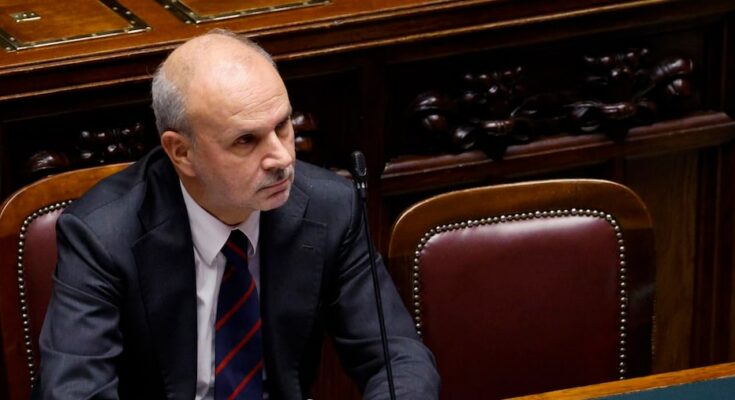Exclusivity restrictions for healthcare professionals such as nurses and physiotherapists employed by the NHS could be postponed for another year, until 31 December 2026. The Minister of Health, Orazio Schillaci, spoke about this at a Q&A session in the Chamber, underlining that the data currently collected does not allow us to outline a homogeneous picture at national level. “An incompleteness – he said – that requires us to be a little careful”.
The area returns with data transmission
The Ministry has asked autonomous Regions and Provinces to submit, every quarter, data relating to requests for permits for freelance activities in the health sector: the number of requests received, accepted and rejected, as well as the implementation or otherwise of planned company regulations. “But not all Regions – Schillaci explains – have provided the requested data and not all employers and NHS bodies have adopted the regulations”. Based on the first data collected, the most frequent authorizations given were nurses, physiotherapists, nutritionists, speech therapists, developmental age neuro-psychomotor therapists and cardiocirculatory pathophysiology and cardiovascular perfusion technicians.
Expansion goals
Due to this delay, Schillaci is evaluating the opportunity to launch the necessary initiatives to propose an extension of the deadline established by law from 31 December 2025 to 31 December 2026. There are two objectives: on the one hand to respond to the increasing need for services requested by the healthcare system, and on the other hand to increase staffing in the healthcare sector, allowing them to carry out their activities, in line with what has been envisaged for medical management staff, outside of service hours.
Campania postponement at Pnrr
In the Question Time session, the Minister of Health also answered questions regarding the Campania Region’s delay in implementing Pnrr. Based on the latest Agenas report, there are no active Community Homes out of the 191 planned Hospitals and only one Community Hospital out of 61 active Hospitals. “The data from the Report for the first half of 2025 are correct and, for the Campania Region, highlight serious delays that we cannot hide or minimize”, explained Schillaci, underlining that “we cannot afford to let the allocated resources remain on paper while citizens crowd the emergency rooms because there are no other alternatives in the area”. The minister also spoke about the possibility of exercising alternate powers. “The Campania region states that the structure was created by the local health authority as a delegated implementer – he added -. Good, but this cannot be an alibi. The region has the task of coordinating, controlling and intervening”. Regarding replacement powers, the minister reminded that “the tool exists and, if necessary, will be activated. We are currently working closely with the Campania Region with the aim of speeding up and making up for lost time”.
No personal deviation
Another question asked the Minister to respond to initiatives to support Regions in reducing waiting lists and full LEA provision, to avoid a process of privatization of public health services. “Clarity is needed when talking about private deviations – says Schillaci –. The relationship between the government and the private sector in health services must be understood as a model of good integration, not just as an opposition. The public sector plays a central and guaranteeing role, while the accredited private sector operates in a complementary way, within a regulated system. The aim is to ensure that citizens have timely, appropriate and universal access to health services”. But for the minister, there are some things that need to be readjusted “but this system, despite everything, continues to work. A system that gives work to hundreds of thousands of people and makes us one of the longest-lived countries in the world and Italy’s 23,500 centenarians demonstrate this every day. Those with government responsibilities cannot afford demagoguery. They have to deal with a real budget – he concluded – and not with an imaginary one. And when these calculations are made – as shown by the increase of 7.4 billion compared to 2026 – the results can be measured and verified



